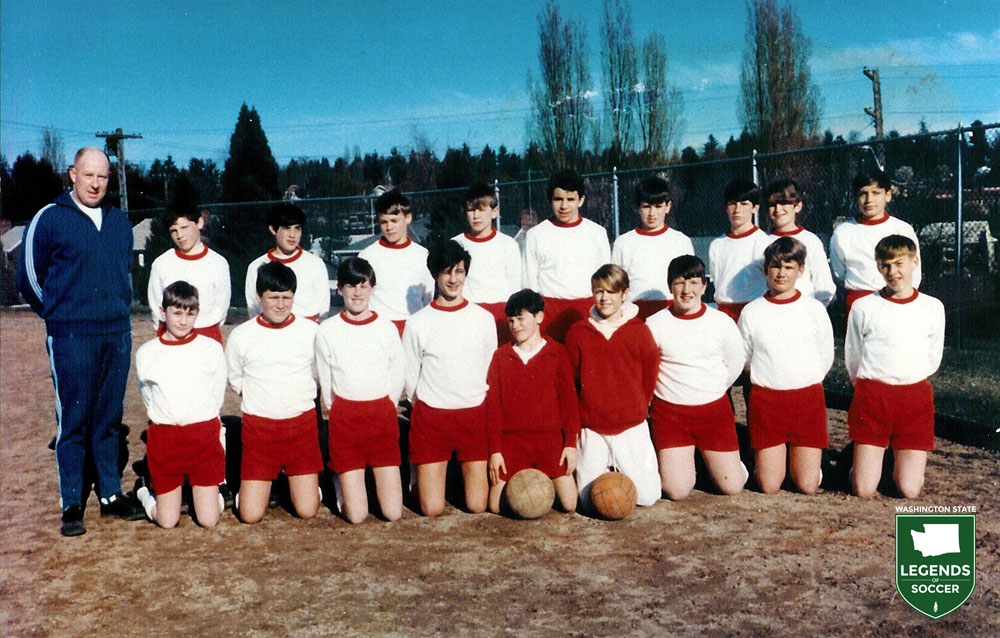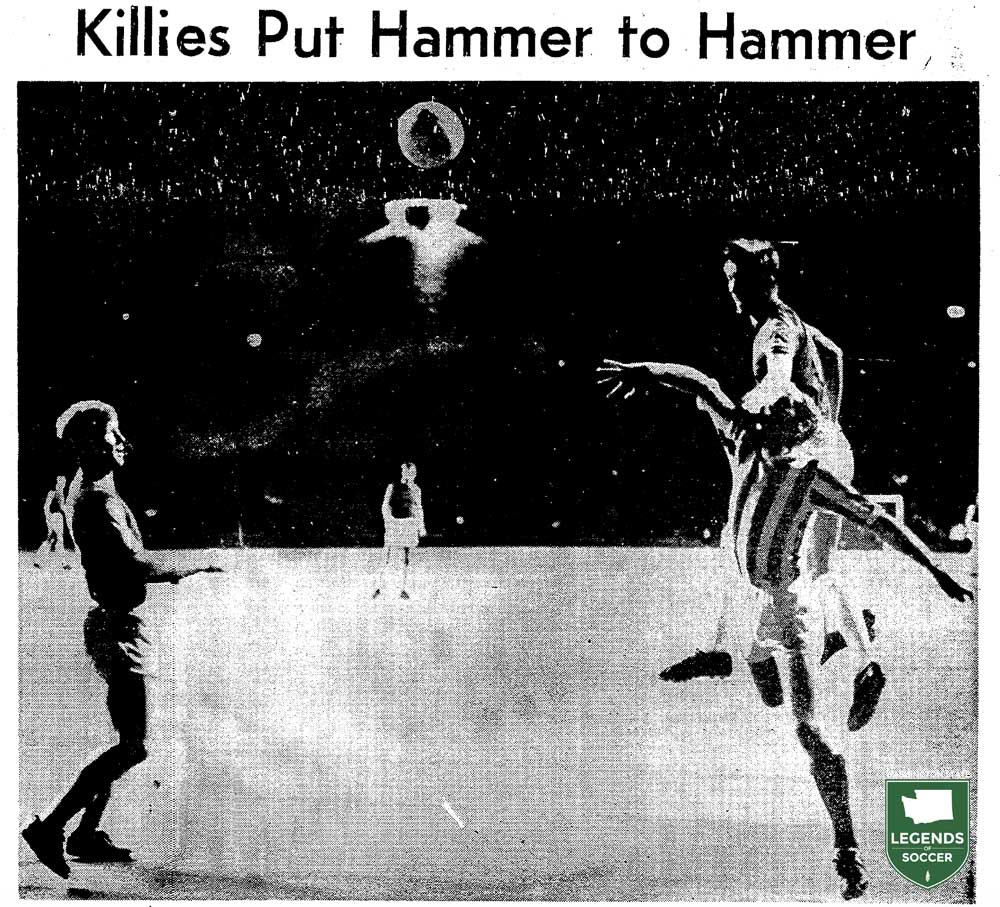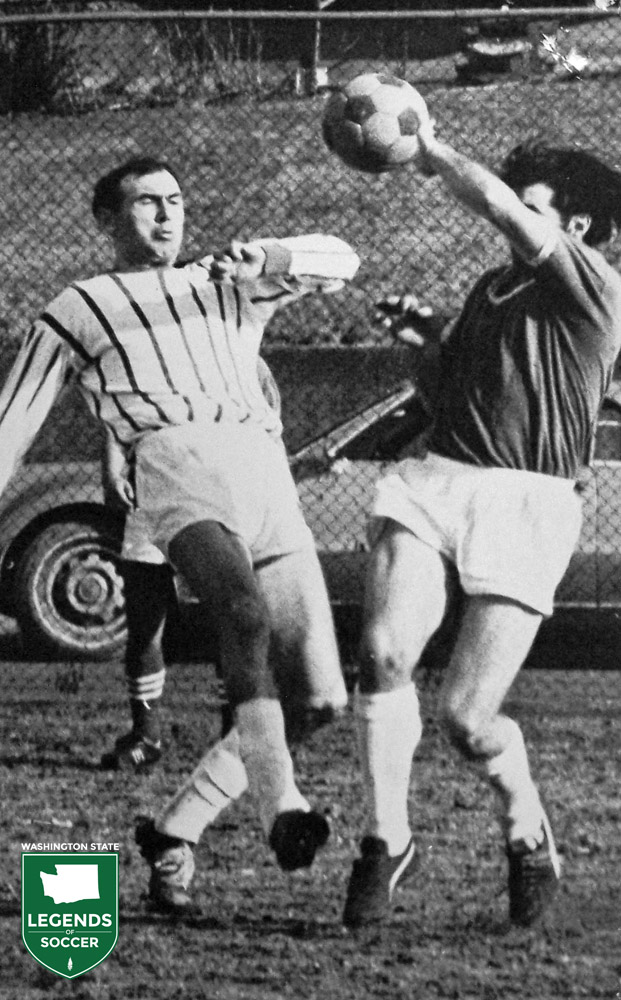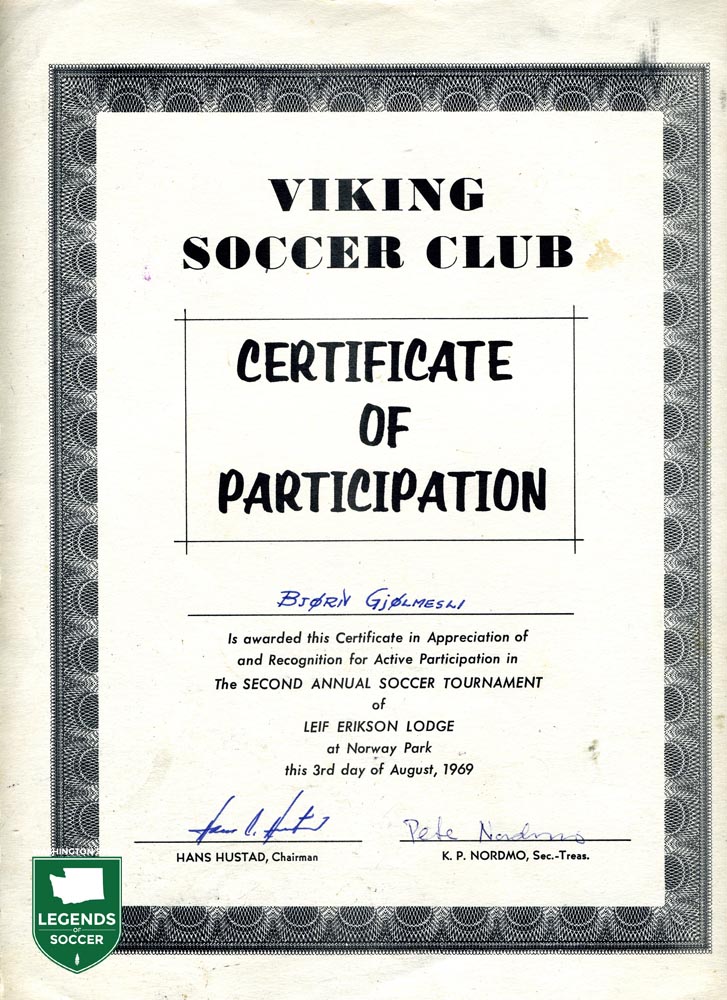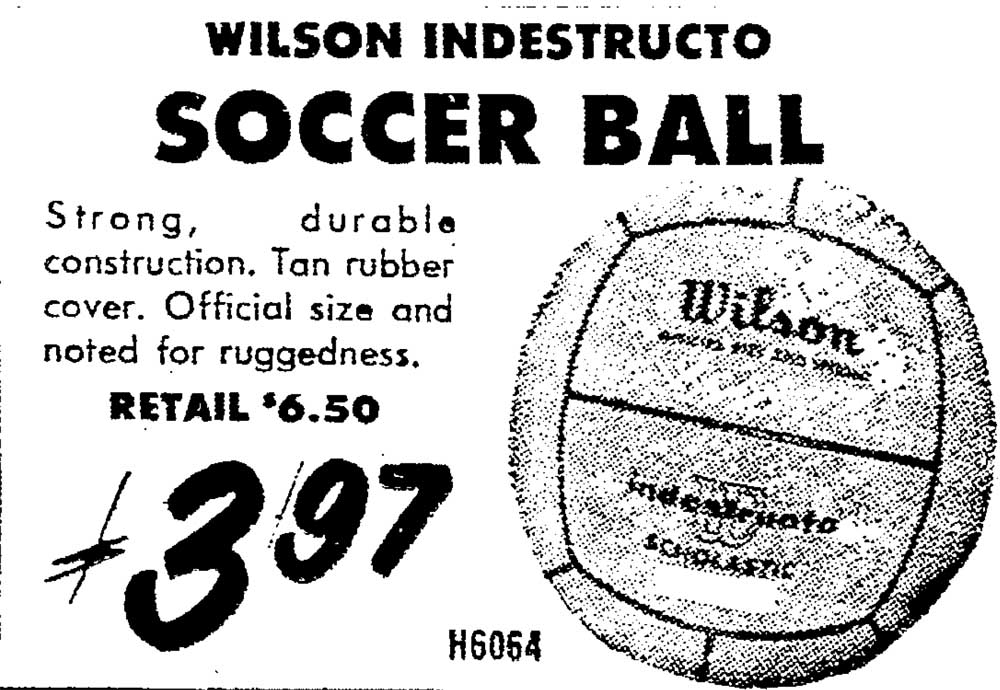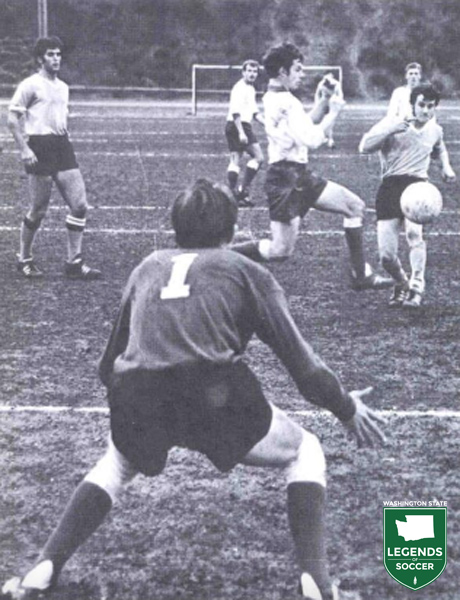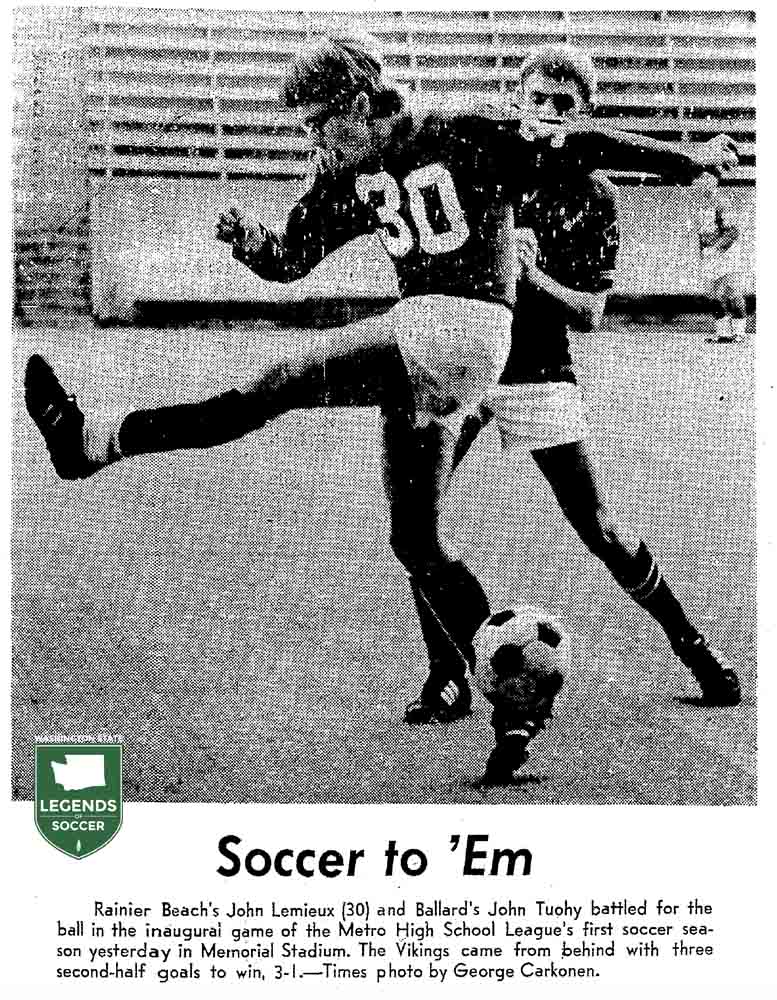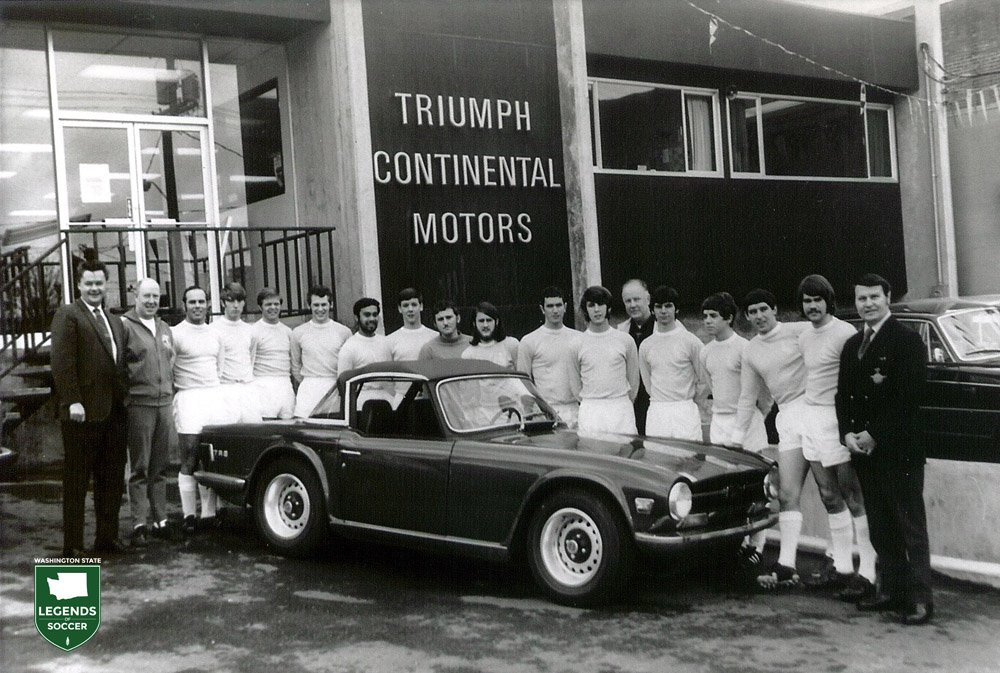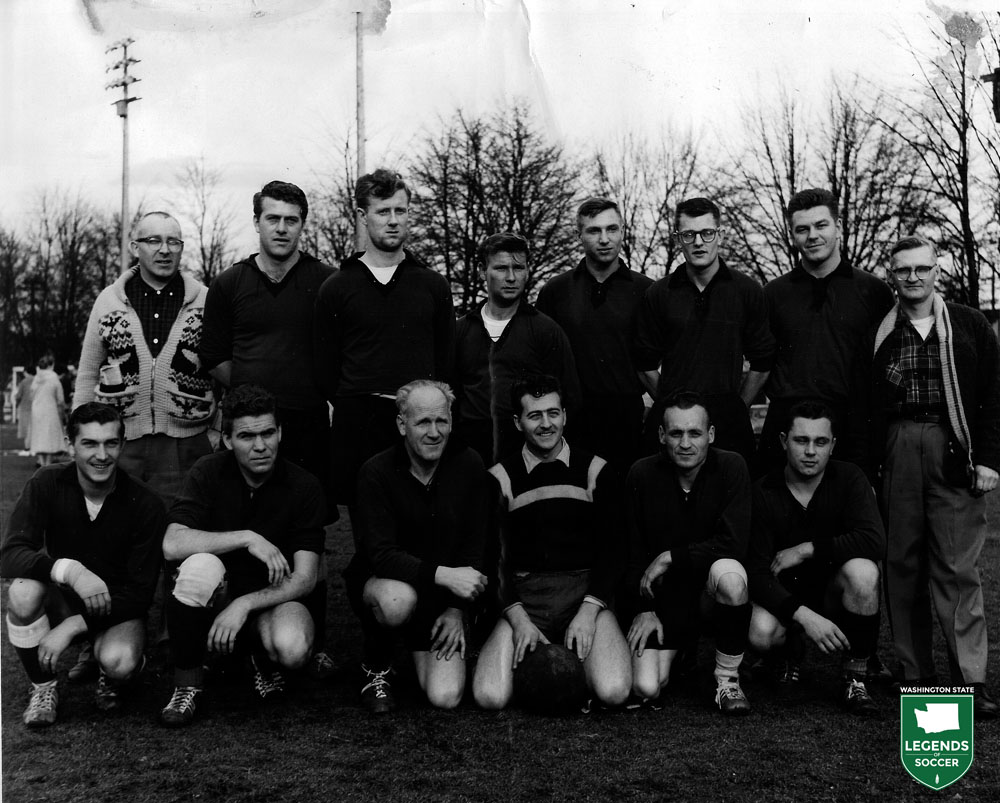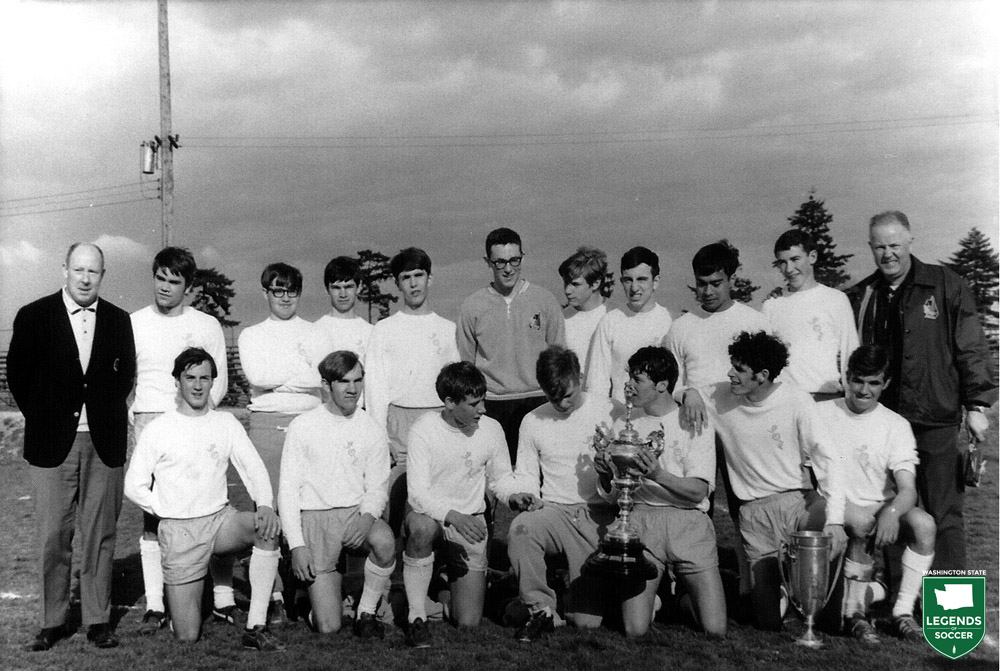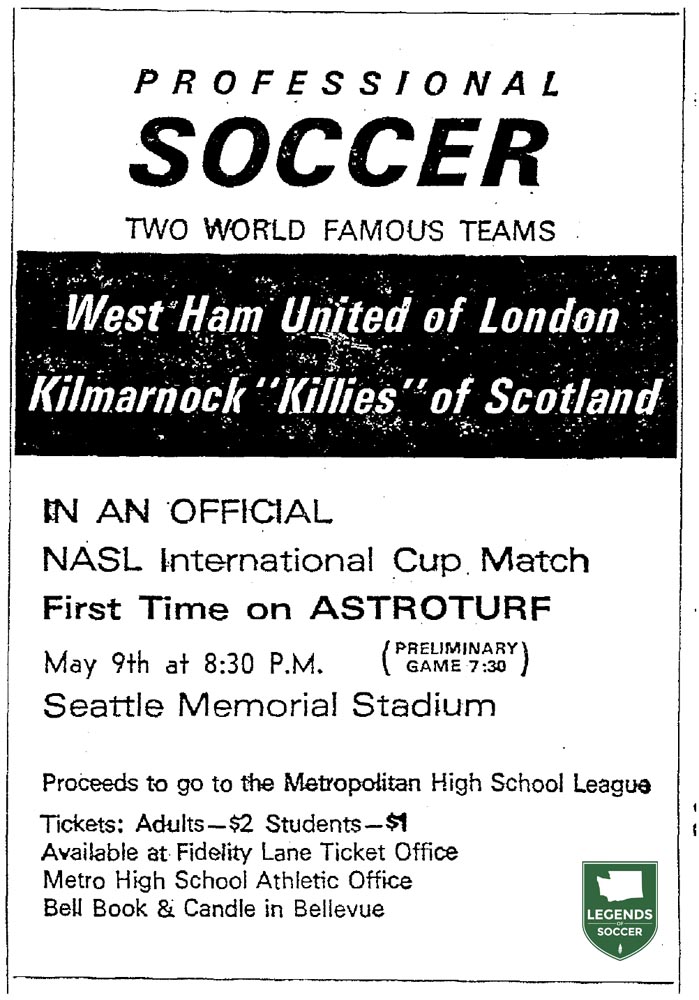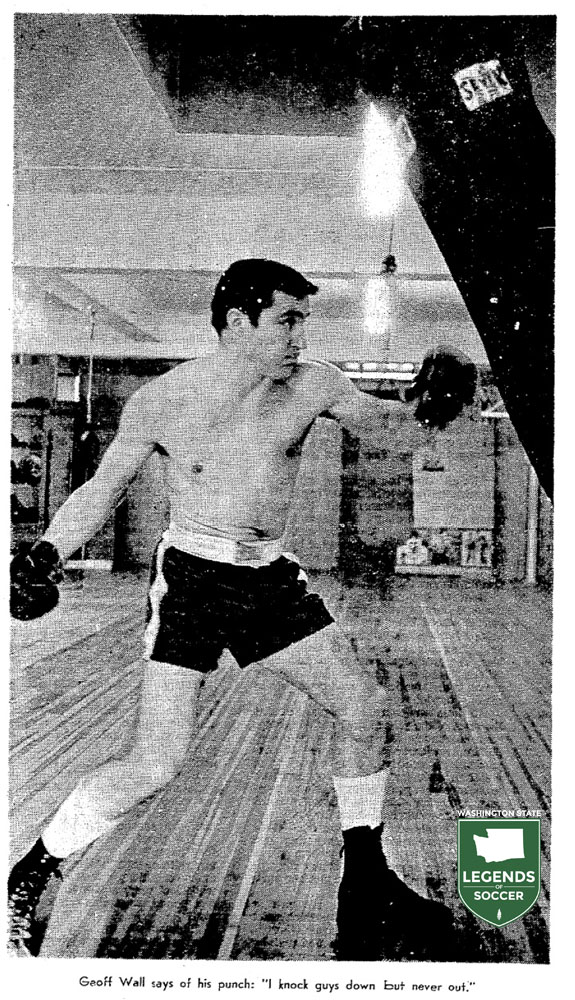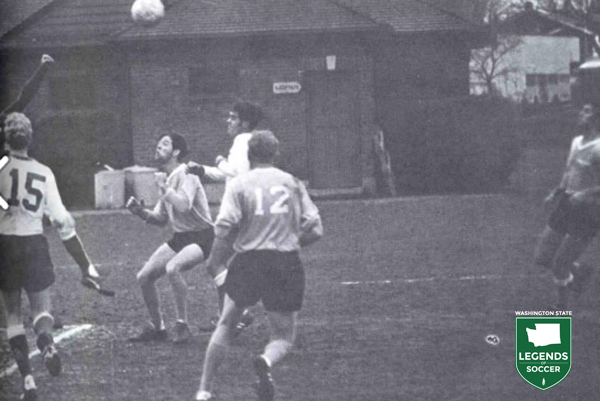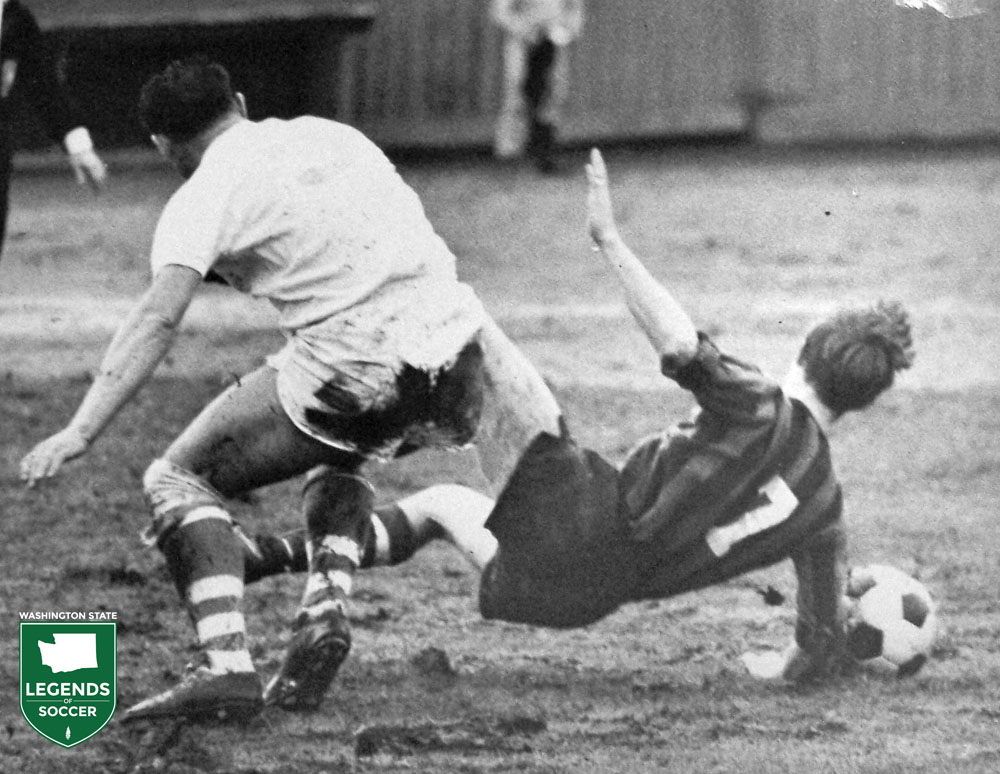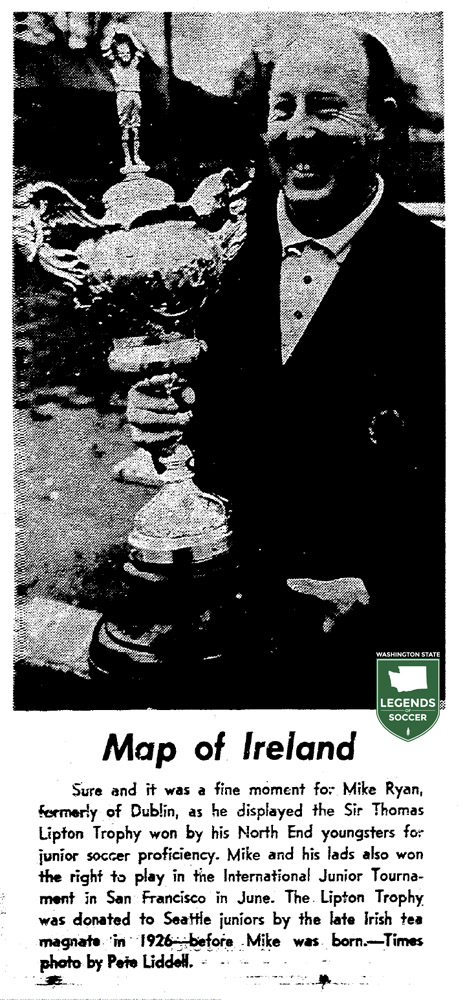1969 – Around the World and Close to Home
From Woodstock to the Moon, it’s a momentous year. Crosby, Still, Nash & Young, The Who and band after band, all capped by Seattle’s own Jimi Hendrix play to hundreds of thousands rock lovers. Weeks earlier, 650 million worldwide watch Apollo 11’s Neil Armstrong and Buzz Aldrin first set foot on the Moon. Seattle’s skyline is raised by the opening of the 50-story Seattle First National Bank headquarters Boeing’s jumbo jet, the 747, makes its maiden flight from Everett, and Major League Baseball comes to Seattle, albeit briefly, with the expansion Pilots opening play at an inadequate Sicks’ Stadium.
End of the Line
It was an excellent run. But as the Sixties conclude, the Seattle Hungarians’ historic state league reign reaches its terminus. After winning dozens or trophies and widespread acclaim for their skill and cunning and commitment to attack, the Magyars win a record seventh state league championship – the last five consecutively – to go with their seven Northwest (Washington-Oregon) titles.
Although the Hungarians were aging, with many of their stars now in their mid-30s, their expiration date is more a consequence of off-field matters involving their sponsor. Budapest-born Balint Ducz owned his bakery in the Hungarian capital when he and his family fled the post-World War II Soviet occupation. Ducz, his wife and two children made their way, via Munich and New York, to Burien in 1950. By 1953, the family converted a garage into the Ducz Viennese Bakery & Candy Shop. It became much more than a neighborhood business when their pastries were sold to travelers at SeaTac Airport and aboard United Airlines flights.
Ducz sponsored Hungarian refugee families and the United contract enabled him to sponsor a team comprised of nearly exclusively Hungarian players in the state league, beginning in 1958. By 1961 the Seattle Hungarians became the dominant team in Washington, and the following year Ducz took his flamboyant side, now including imports from leagues in Portland, Denver and Vancouver, to semipro status and the Pacific Coast League. In 1964, the Hungarians recorded the state’s first victory in the U.S. Challenge Cup, eventually advancing within a goal of the semifinals in 1967.
By then, the Hungarians had become more multi-national. In addition to the great Les Fabri, Mike Kuczi, Steve Furjesi, Zoltan Mako, Alex Bogdan, and Autal “Tommy” Major, Ducz lured Constantino Tagios, Geoff Wall, Coco DeVettori and Willi Lindner. The only interruption to their state league supremacy was the two-year stay in the PCL. Otherwise, they won the seven straight league seasons they entered.
Ducz, who also coached the team, created a close-knit squad out of some headstrong individuals that exhibited beautiful soccer on Sundays, the close control and interchanging positions being entirely new to the state. Some were well-compensated, and all were taken care of, with chartered buses (often stocked with complimentary postgame beer) for PCL away trips, travel blazers with embroidered patches for Challenge Cup, and bakery boxes of cakes to share with players and families following home wins (or tossed in the trash after rare defeats).
The 1968-69 campaign proves more challenging, with the Hungarians needing a second-half title to earn a place in the final vs. first-half winner Federal Old Line, which they defeat, 3-1. The following fall, their grip continues to slip as Leif Erikson Vikings win both the first half and their Challenge Cup tie, the latter by 6-2. The final game as Hungarians proved ignominious the manager fails to arrive at West Seattle Stadium with the uniforms, forcing them to forfeit.
The Ducz contract with United having expired, the new decade dawns with the team finding a new sponsor and playing under the name Seattle Magyars. Players would scatter, some retiring, but in 1971 many of them reunite under the Rainier Brewers banner and reassert their command. Ducz remains active in the game, being elected WSSFA vice-president in 1970. Certainly, no individual had invested more funds in a team to that point, with some estimating over $15,000 (equivalent to $390,000 in 2020) his time as sponsor.
 1968
1968
